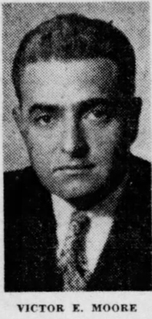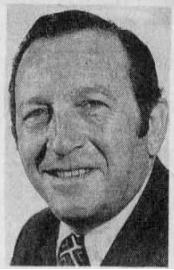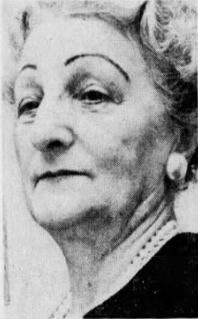Related Research Articles

Edward "Ed" Neilson is an American politician and member of the Democratic Party. In April 2012, he won a special election to represent the 169th District in the Pennsylvania House of Representatives. In May 2014 he won a special election to serve as an at-large member of Philadelphia City Council replacing outgoing councilmember Bill Green. In August 2015, he won a special election to represent the 174th District in the Pennsylvania House of Representatives.

Philadelphia's municipal election held on November 6, 1951, was the first under the city's new charter, which had been approved by the voters in April, and the first Democratic victory in the city in more than a half-century. The positions contested were those of mayor and district attorney, and all seventeen city council seats. There was also a referendum on whether to consolidate the city and county governments. Citywide, the Democrats took majorities of over 100,000 votes, breaking a 67-year Republican hold on city government. Joseph S. Clark Jr. and Richardson Dilworth, two of the main movers for the charter reform, were elected mayor and district attorney, respectively. Led by local party chairman James A. Finnegan, the Democrats also took fourteen of seventeen city council seats, and all of the citywide offices on the ballot. A referendum on city-county consolidation passed by a wide margin. The election marked the beginning of Democratic dominance of Philadelphia city politics, which continues today.
Donald Clarke Rubel was a Philadelphia banker and politician.
Philadelphia's City Council special election of 1954 was held to fill the seat vacated by Republican John W. Lord, Jr. when he resigned to join the federal bench.

Philadelphia's municipal election of November 8, 1955, involved contests for mayor, district attorney, all seventeen city council seats, among other offices. Citywide, the Democrats took majorities of over 130,000 votes, continuing their success from the elections four years earlier. Richardson Dilworth, who had been elected district attorney in 1951, was elected mayor. Victor H. Blanc, a city councilman, was elected district attorney. The Democrats also kept fourteen of seventeen city council seats, losing one district seat while gaining another, and kept control of the other citywide offices. The election represented a further consolidation of control by the Democrats after their citywide victories of four years earlier.

John F. Byrne Sr. was an American politician from Philadelphia, Pennsylvania who served as a Democratic member of the Pennsylvania Senate for the 8th district from 1951 to 1952.

Leon Kolankiewicz was a Democratic politician from Philadelphia.

Victor Edward Moore was a Philadelphia businessman and Democratic politician. He served three terms on the Philadelphia City Council and as chairman of the Philadelphia Gas Works.

Philadelphia's municipal election of November 5, 1957, involved the election of the district attorney, city controller, and the remainder of a term for one city council seat, as well as several row offices and judgeships. Democrats were successful citywide, continuing a run of victories racked up after the passage of a new city charter in 1951 despite growing divisions between factions of the party. Victor H. Blanc, the incumbent district attorney, led the Democratic ticket to victory. They held the city council seat and took two citywide offices that Republicans had won in 1953. In the judges' elections, most were endorsed by both parties but in the one race that pitted a Democratic candidate against a Republican, the Democrats were successful in seating their candidate, former Congressman Earl Chudoff.

Philadelphia's municipal election of November 3, 1959 involved contests for mayor, all seventeen city council seats, and several other executive and judicial offices. Citywide, the Democrats took majorities of over 200,000 votes, continuing their success from the elections four years earlier. Richardson Dilworth, who had been elected mayor in 1955, was re-elected over Republican nominee Harold Stassen. The Democrats also took fifteen of seventeen city council seats, the most seats allowed to any one party under the 1951 city charter. They further kept control of the other citywide offices. The election represented a continued consolidation of control by the Democrats after their citywide victories of the previous eight years.

Marshall Lorenzo Shepard, Sr. was an American Christian clergyman and politician. Affiliated with the Democratic Party, his political career was focused in the city of Philadelphia.

Maurice S. Osser was a Democratic politician from Philadelphia who served as City Commissioner.

Philadelphia's City Council special election of 1960 was held to fill two vacant city council seats. The first was in the 4th district, when Democrat Samuel Rose died in January 1960. A second vacancy that same year occurred in the 6th district when Democrat Michael J. Towey died suddenly in September 29. Special elections were scheduled for November 8, 1960, to be held at the same time as the national election that year. Both seats were easily held by the Democratic Party.

Philadelphia's City Council special election of 1962 was held to fill three vacant city council seats. The first was in the 8th district, when Democrat Alfred Leopold Luongo was appointed to the federal bench in September 1961. A second vacancy that same year occurred in the 10th district when Democrat John M. McDevitt resigned in June 1962 to become a Catholic priest. An at-large seat also became vacant when Victor E. Moore resigned in September 1962 to become the head of the Philadelphia Gas Works. Special elections were scheduled for November 6, 1962, to be held at the same time as the federal and gubernatorial elections that year. Democrats held two of the seats but lost the 8th district to a Republican.

Mary Frascone Varallo was a Democratic politician from Philadelphia who served in the Pennsylvania House of Representatives and the Philadelphia City Council.
Maxwell Edward Seidman was an American lawyer and politician affiliated with the Democratic Party.

Philadelphia's municipal election of November 5, 1963, involved contests for mayor, all seventeen city council seats, and several other executive and judicial offices. The Democrats lost vote share citywide and the Republicans gained one seat in City Council, but the Democratic acting mayor, James Hugh Joseph Tate, was elected to a full term and his party maintained their hold on the city government. The election was the first decline in the Democrats' share of the vote since they took control of the city government in the 1951 elections, and showed the growing tension between the reformers and ward bosses within their party.

Austin Andrew Meehan, Sr., was a Republican politician in Philadelphia who served as county sheriff. Before entering politics, Meehan ran his family's paving business and was known as a local basketball star. Beginning as an insurgent within the city's Republican Party, he soon won the favor of party bosses and climbed the ranks of Philadelphia's Republican organization. Meehan served two terms as county sheriff from 1944 to 1952 and was recognized as the unofficial head of the Republican Party in Philadelphia in the 1950s. He remained an influential party member until his death in 1961. He was the father of Billy Meehan.

Walter Stanley Pytko was a Democratic politician from Philadelphia. Active in Polish-American groups in Philadelphia's Bridesburg neighborhood, Pytko also became involved in local politics. He served one term in the Pennsylvania State Senate in the 1930s and worked in various government agencies through the 1940s and 1950s. In 1962, he was elected to the Philadelphia City Council, where he served until retiring in 1968.